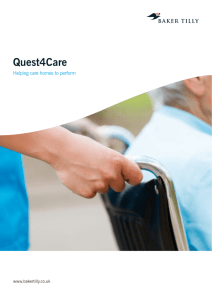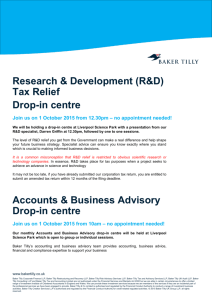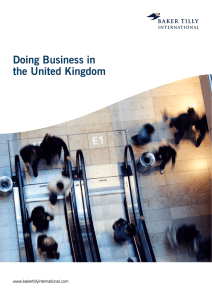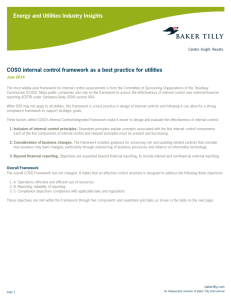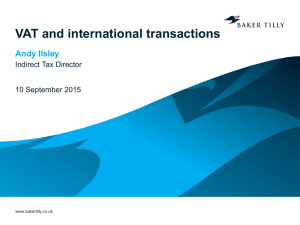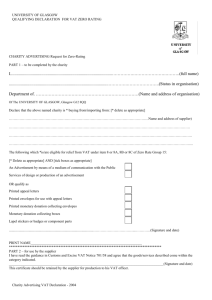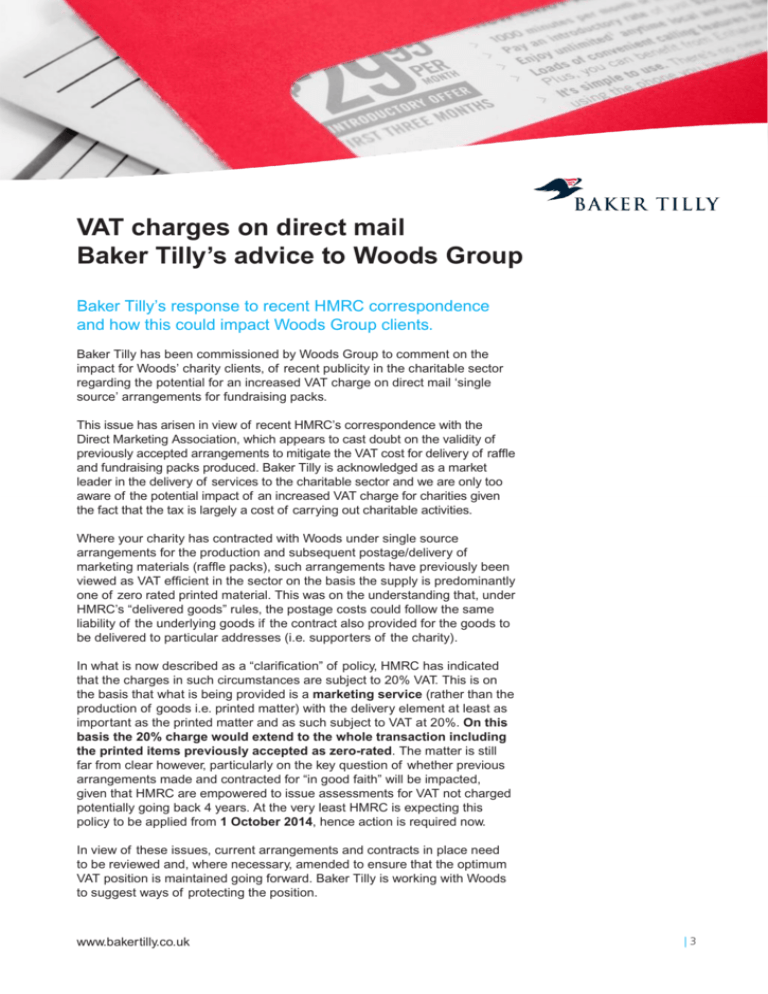
VAT charges on direct mail
Baker Tilly’s advice to Woods Group
Baker Tilly’s response to recent HMRC correspondence
and how this could impact Woods Group clients.
Baker Tilly has been commissioned by Woods Group to comment on the
impact for Woods’ charity clients, of recent publicity in the charitable sector
regarding the potential for an increased VAT charge on direct mail ‘single
source’ arrangements for fundraising packs.
This issue has arisen in view of recent HMRC’s correspondence with the
Direct Marketing Association, which appears to cast doubt on the validity of
previously accepted arrangements to mitigate the VAT cost for delivery of raffle
and fundraising packs produced. Baker Tilly is acknowledged as a market
leader in the delivery of services to the charitable sector and we are only too
aware of the potential impact of an increased VAT charge for charities given
the fact that the tax is largely a cost of carrying out charitable activities.
Where your charity has contracted with Woods under single source
arrangements for the production and subsequent postage/delivery of
marketing materials (raffle packs), such arrangements have previously been
viewed as VAT efficient in the sector on the basis the supply is predominantly
one of zero rated printed material. This was on the understanding that, under
HMRC’s “delivered goods” rules, the postage costs could follow the same
liability of the underlying goods if the contract also provided for the goods to
be delivered to particular addresses (i.e. supporters of the charity).
In what is now described as a “clarification” of policy, HMRC has indicated
that the charges in such circumstances are subject to 20% VAT. This is on
the basis that what is being provided is a marketing service (rather than the
production of goods i.e. printed matter) with the delivery element at least as
important as the printed matter and as such subject to VAT at 20%. On this
basis the 20% charge would extend to the whole transaction including
the printed items previously accepted as zero-rated. The matter is still
far from clear however, particularly on the key question of whether previous
arrangements made and contracted for “in good faith” will be impacted,
given that HMRC are empowered to issue assessments for VAT not charged
potentially going back 4 years. At the very least HMRC is expecting this
policy to be applied from 1 October 2014, hence action is required now.
In view of these issues, current arrangements and contracts in place need
to be reviewed and, where necessary, amended to ensure that the optimum
VAT position is maintained going forward. Baker Tilly is working with Woods
to suggest ways of protecting the position.
www.bakertilly.co.uk
|3
To clarify, HMRC agree that certain printed materials, when supplied to
charities, can be zero-rated if it is clear that the purpose is to raise money
for the charity and they are linked to a particular appeal. This includes the
preparation, production and delivery of advertising materials, provided they
have sufficient legend on them to indicate the fundraising purposes. There
are also VAT reliefs available for individual elements of postal packages
which can be zero-rated under a concession for charities in respect of appeal
letters and envelopes (where they are specifically for fundraising purposes),
or because they are, for example, brochures or leaflets and zero-rated
anyway under primary VAT legislation. VAT relief would also apply to the
creative design and artwork services typically regarded as ancillary to the
printing process.
Furthermore, when a “package” of materials is produced, an additional
concession applies which allows the VAT liability of the package as a whole
to be determined by the majority of items within it – the so-called “package
test”. Put simply, if more of the individual items in the package are zero-rated
then the package as a whole can be zero-rated.
Importantly, the package test can only be applied when goods are being
produced, not services. Therefore if what is being provided in totality
is a marketing service – the whole transaction is likely to be regarded
(under the revised interpretation) as standard-rated and that would
include the mailing pack.
You may therefore wish to give consideration to contracting separately for the
services that specifically relate to the delivery element of the contract. For
example entering into a separate contract with your own “Downstream Access”
provider, or contracting separately with one that Woods would arrange.
In summary therefore our recommendations are set out below;
1
Having separate contracts with Woods Group;
• One contract for the printed matter only i.e. the mailing pack.
• One contract for the other services that will be subject to VAT
at the standard rate.
2
Making separate arrangements directly for postage with a
Downstream Access provider. This would be a contract between
the charity and the downstream access supplier.
Contracting separately for the production of the mailing pack from
other services and then making wholly separate arrangements for
postage is, in our professional opinion, the only way to maximise
protection to your clients from bringing the pack into scope for VAT
at the standard rate.
Baker Tilly would be confident that under these new arrangements
zero-rating of the printed goods element (i.e. raffle packs) above can be
maintained.
Andy Ilsley
VAT Director
www.bakertilly.co.uk
Baker Tilly Corporate Finance LLP, Baker Tilly Restructuring and Recovery LLP, Baker Tilly Risk Advisory Services LLP, Baker Tilly Tax and Advisory Services LLP, Baker Tilly UK Audit
LLP, Baker Tilly Business Services Limited and Baker Tilly Tax and Accounting Limited are not authorised under the Financial Services and Markets Act 2000 but we are able in
certain circumstances to offer a limited range of investment services because we are members of the Institute of Chartered Accountants in England and Wales. We can provide
these investment services if they are an incidental part of the professional services we have been engaged to provide. Baker Tilly & Co Limited is authorised and regulated by
the Financial Conduct Authority to conduct a range of investment business activities. © 2014 Baker Tilly UK Group LLP, all rights reserved.
|4

